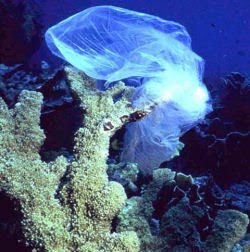
Plastic bags have been exponentially growing in American households each and every day. Most people just stuff them in every knook and cranny in their kitchens that they can find, yet a very small percentage winds up in the recycling bin.
But often, curbside programs will not accept plastic bags, due to their lack of weight and their ease in getting caught into the machines. However, with the large expansion of their presence in the United States alone, they have found themselves pushed toward the forefront of the environmental preservation debate.
Nearly 400 billion plastic bags are used each year, and only a little over 5 percent of these bags in the municipal waste system were recycled in 2005. Plastic bags make up about 9 percent of debris found on U.S. coastlines, the information being gathered as a result of a five-year study.
One of the most unfortunate facts about plastic bags is that they do not bio-degrade, they photo-degrade, meaning they eventually break down into smaller parts that can contaminate soil and waterways.
The toxic chemicals needed to make this plastic produce pollution when in the manufacturing process. If we use less plastic bags, then we will have less pollution.
Countless numbers of these bags end up in the ocean, where marine animals can be severely harmed by their intrusion. After all, these bags can be mistaken for food. Plastic bags look a lot like jellyfish, which is the primary source of food for many turtles.
But there are many benefits to recycling these suckers. Besides clearing up all of tat extra space in your own habitat, when just one ton of plastic bags is recycled, the energy equivalent of 11 barrels of oil is saved.
Here's a number of helpful tips that you can use to recycle plastic bags:
1) You can use plastic bags as opposed to expensive filler when packing your bags.
2) Use the bags as trash can liners, that's one of my favorites.
3) use them to pick up animal waste.
4) You can create art-pastic bag crochet patters are available online.
5) Cut the bags to make bibs or aprons, save a little dough.
6) Use them as overshoes to keep your carpet clean when someone has muddy shoes.
Thes types of plastic bags can be recycled, according to plasticbagrecycling.org:
-grocery bags
-retail bags
-paper towel and toilet paper plastic wrap
-newspaper bags
-dry-cleaning bags
These CANNOT be recycled:
-Used food or cling wrapping
-Prepackaged food wrappings, including frozen foods
-Bio-based or composable bags
When you're ready to take those bags to be recycled, you can check the number on the bottom of the bags and use Earth911's recycleing locator to find out where you can recycle them from.
Most of this information was gathered from: http://earth911.com/plastic/plastic-bags/







